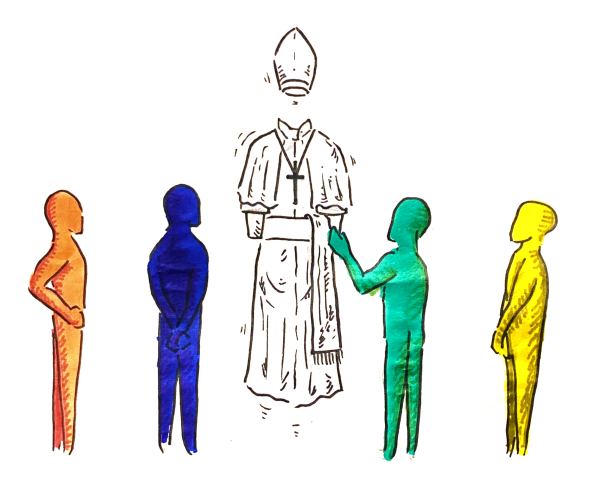Hungarian Election: A Model for Democracies?
Viktor Orbán, the Prime Minister of Hungary, is up for re-election on April 3.
“By nature, Hungarians stand up for what is right when the need arises. What is more, they fight for it if needs be…”
-Viktor Orbán, Prime Minister of Hungary
He was right. However, one thing that Orbán did not predict is that, seven years after delivering his famous speech, Hungary would be fighting in unity for what’s right – a democratic government without him at the helm.
For all those that have seen news about Hungary’s government recently, ‘truth-teller’, ‘champion of democracy’ and ‘brave revolutionary’ are probably not the words that would be used to describe Viktor Orbán. But, at the start of his political career, that’s exactly who he was. Fidesz – a party now condemned by experts all around the world as responsible for the degradation of press freedom, erosion of democratic norms and a ruthless campaign against gay people in Hungary – started out as a group of young Democrats battling the Soviet Union’s oppressive regime. Over the years, however, it’s turned into a vehicle of oppression and tyranny that has destroyed Hungary’s international image. Fidesz must be thrown out of power immediately. It won’t be easy. It will take an unprecedented showing of unity, as opposed to petty splits over minor policies, a showing that could influence not only Hungary’s future, but the future of democracy. But first, some context is required.
Orbán rose to prominence in the late 1980s and early 1990s as a champion of democracy, opposed to the Soviet Union’s continued control of Hungary. In the aftermath of the USSR’s collapse in Eastern Europe, it was only natural that he became part of the first class of reformers to be elected to Hungary’s parliament under the banner of a new party he now led – Fidesz.
Fidesz thrived in this new political landscape, rising to be the governing party of a center-right moderate coalition in 1998, when Orbán first became Prime Minister. Under his leadership, however, instead of furthering democracy, Fidesz became a danger to it. Orbán allegedly repeatedly attempted to sideline parliament, replace heads of key institutions with loyalists, and make gestures glorifying Hungary’s Imperial past (see: 1999 Status Law). All of this was, of course, a frightening preview of what could happen under Orbán’s rule, and the Hungarian people were having none of it. His coalition government ultimately collapsed, with Orbán ousted in favor of a more liberal politician.
Over the next 8 years, Orbán’s party moved further and further to the right, promising voters a return to different times and to change the Hungarian constitution to promote a set of ‘values’ that he considered to be essential for Hungary – among them nationalism and opposition to the EU, migration and homosexuality. Under this platform, Fidesz won an absolute majority in parliament in 2010.
Since then, Orbán has managed to make Hungary, which has one of the brightest legacies of democracy in Europe, into an enemy of the EU. He has manipulated the Hungarian justice and financial systems, stacked every layer of the Hungarian government with loyalists, and has frequently been accused of horrible treatment of migrants and minorities.
All of this seems to raise an obvious question. How was he able to do this, and what can be done about it? Well, Orbán’s allies have taken control of the media, Supreme Court, and all institutions responsible for the administration of Hungary’s democratic process. In cases like this, it’s difficult to unite everyone to vote for a candidate just on the pretense of disliking the current government. This division is exactly how Orbán, in my opinion, has been able to survive for so long: he’s pitted members of the opposition against each other over issues that they pay attention to, like migration, to hide the fact that there’s a far more important issue at stake – the survival of the democracy of their country.
This division, as small as it may seem, is what dooms pro-democracy movements in illiberal democracies. So how can a pro-democracy movement unite despite ideological differences to overcome an opponent of democracy?
Well, here’s an example: 2021. A demagogue has ruled over the country for 15 years, and voters are determined to finally throw him out. A brutal slog, election after election, not a single one giving either side a stable majority, has gone on for years. The results come in again, and no single party has enough of the vote to enter government. So, a coalition of people that do not agree on anything (jobs, religion, war, foreign policy, the economy, response to COVID, the borders of the country, the religion of the country, literally anything) gather and finally decide that they will no longer put up with this. They resolve that their united desire to live in a democracy is more important than bickering over small policy changes. They unite, and Benjamin Netanyahu, the man who has dominated Israeli politics for years, is finally thrown out of power.
As strange as it sounds, at its core, democracy is about a collective will to preserve freedom. Institutions and political parties are arbitrary. Instead, civil society makes – or breaks – democracy. Maintaining it requires compromising on more bread-and-butter issues for the sake of preserving a country’s government.
With that in mind, Hungary’s election is a test of whether voters are able to put aside ideological differences and vote for country over party. An alliance has formed of every single opposition party to defend democracy against Viktor Orbán. They now have a common candidate in every electoral district in Hungary – a man who, as a right-wing, not really widely-known politician, actually ideologically resembles the man who unseated Benjamin Netanyahu, Naftali Bennett. This spring, this candidate, Peter Marki-Zay, and the exceptionally diverse coalition of parties supporting him, are entering a showdown against the man who has dominated their country’s politics for more than a decade and a half.
This coalition is a massive array of left-wing, green, centrist and right-wing parties. On the surface, Jobbik, a far-right, populist, rural-based anti immigration party, would never make an alliance with the urban, left-wing Socialist party. All of them, coming together, are united by one thing – their love of their own country and desire to protect it from more of Orbán’s rule. But this is about more than Viktor Orbán. It raises a real question that strikes fear into the heart of every dictator around the world – if faced with a threat to their democratic values, can people really put aside the petty politics and policy differences and unite to fight back?
Sometimes, when everything you treasure about the place you live is about to be wiped out by a despot, no matter how hard it is, you have to bite your tongue and do what has to be done, vote for who can defeat the despot as opposed to making a statement to vote for a losing candidate. We need to recognize the value of pragmatism and democracy in our lives and ensure that our society comes to terms with our ability – and duty – to defend our communities from attack.






